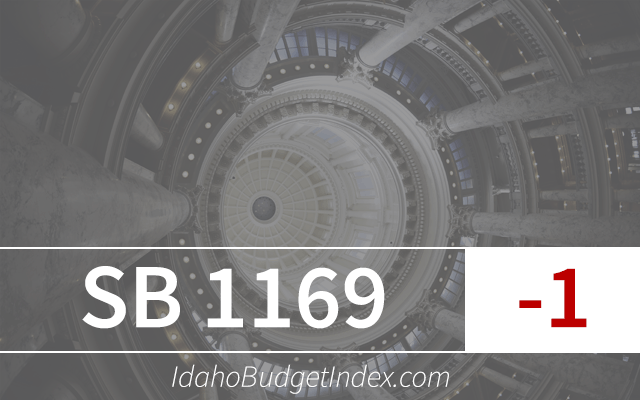


The Idaho Budget Index examines appropriation bills on several fronts to add important context to lawmakers’ discussions as they are considered on the floor of the House and Senate. Among the issues we look at in drawing a conclusion about a budget:
Does the agency requesting these funds serve a proper role of government? Has wasteful or duplicative spending been identified within the agency, and if so, has that spending been eliminated or corrected? Does the budget examine existing spending to look for opportunities to contain spending, e.g., through a base reduction? If there is a maintenance budget, is that maintenance budget appropriate? Are the line items appropriate in type and size, and are they absolutely necessary for serving the public? Does the budget contemplate the addition of new employees or programs? Does the appropriation increase dependency on the federal government?
Our analysis is intended to provide lawmakers and their constituents with a frame of reference for conservative budgeting, by summarizing whether appropriation measures contain items that are sincerely objectionable or sincerely supportable.
Analysis:
While there is little noteworthy in this budget per se, it still poses legitimate concerns for legislators.
The Idaho State Lottery is three decades old but the problems with the establishment and running of a government gambling operation are no different today than the first lottery ticket was sold in Idaho in 1989.
The government simply shouldn’t be in the lottery business. It is not the proper role of government. In addition to being a tax on the poorest, who hope that a winning ticket will solve their financial problems, it is also widely understood to be a tax on people who believe that they may be lucky enough to “strike it rich” even though the odds don’t favor such an outcome. The lottery, therefore, often extracts money from the people who can afford it least, making it highly dubious public policy.
Rating: -1


